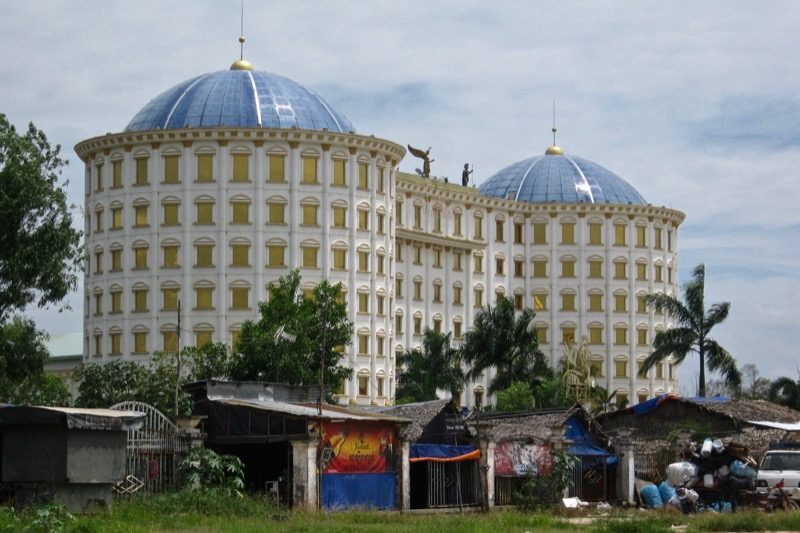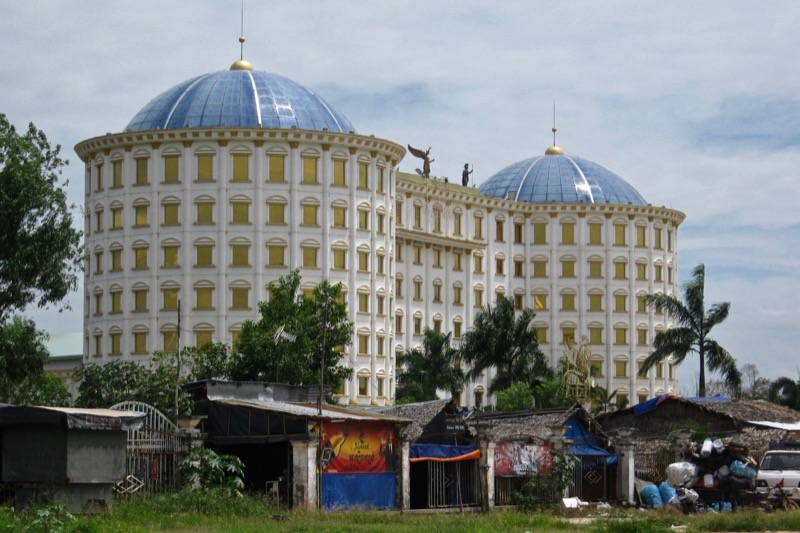Cambodian casinos on the Vietnamese border have already been beset by closures as they face the upcoming challenges of competition from across the border and a stricter tax regime at home, industry observers said this week.
Gambling operators in Bavet City, which sits on the Vietnamese border in Svay Rieng province, have long catered to customers traveling from Vietnam, where gambling has been largely prohibited for Vietnamese citizens under a strict gambling law.

Last week, however, the Vietnamese government issued a decree to soften the law and allow for the establishment of casinos that cater to higher-end domestic clientele. Two are already in the pipeline, one on the southern resort island of Phu Quoc.
Cambodian casinos also face disruption at home as the government is expected to pass an amended gambling law later this year focusing on increasing tax revenues and capital requirements.
Anthony Galliano, CEO of Cambodian Investment Management, said the Vietnamese decree would be “a singular severe blow to the Kingdom’s outskirt casino towns.”
“The government’s ill-timed draft law, which would raise minimum capital requirements for casinos, combined with the Vietnamese decree, is the death knell for the already struggling border casinos,” Mr. Galliano said.
“A good deal of these casinos are on life support and what is really needed is government incentives, rather than a regulatory blow, to save jobs and prop up the industry.”
Ros Phearun, deputy director-general of the Finance Ministry’s financial industry department, said the effect of Vietnamese casinos on the Cambodian industry may not be immediate, but could be far-reaching.
“Vietnam isn’t opening them broadly, only in the north and south,” Mr. Phearun said. “But in the future if they open more there might be a significant impact.”
The casino industry generated $43.4 million in tax revenues during first 11 months of last year, according to Finance Ministry data. About a quarter of those tax receipts were from casinos along the Vietnamese border, which number about 20 out of the roughly 70 casinos in the country, Mr. Phearun said.
As for Cambodia’s new gambling law, “maybe some unorganized small casinos will see effects on their business,” he said, but the new law should be a benefit for larger establishments.
“We hope to improve the management of the casino industry with the new amendment,” he said.
Ben Lee, managing partner of Macau-based consulting firm IGamiX, which specializes in Asia-Pacific gaming markets, said Cambodian casinos along the border had been struggling for some time, with six or seven of them closing down.
Of the remaining establishments, Mr. Lee said “even those are struggling, and the shuttered ones are unable to be sold.”
The new regulations in Vietnam, which are being brought in for a three-year trial, will only allow casinos to admit Vietnamese citizens if their total capital investment is at least $2 billion and they restrict entry to those with a monthly income of at least the equivalent of about $450.
Mr. Lee, of IGamiX, said upper-end Vietnamese gamblers were already flying to establishments in Singapore and Australia, and the gaming revenue generated by Vietnamese players in Cambodia “is probably less than what most people believe.”




